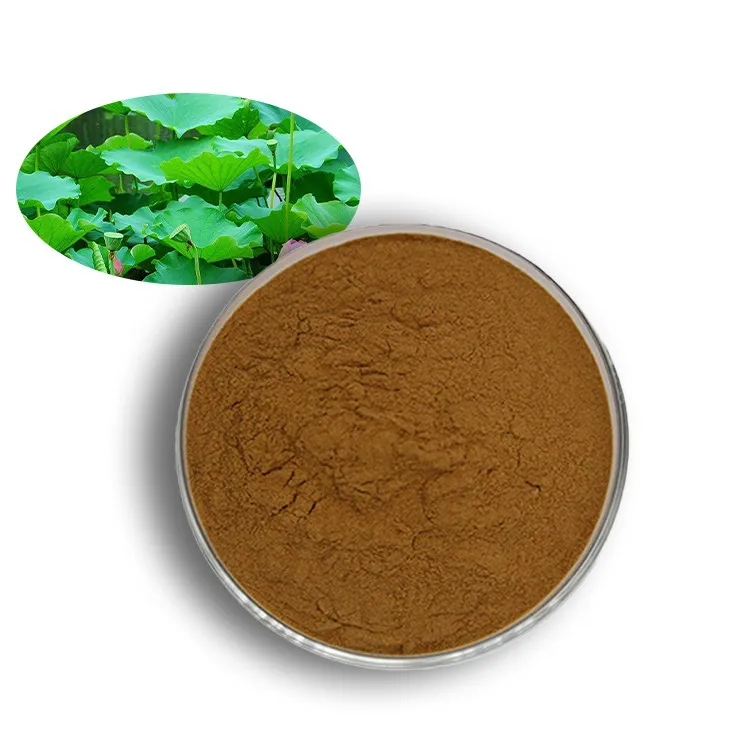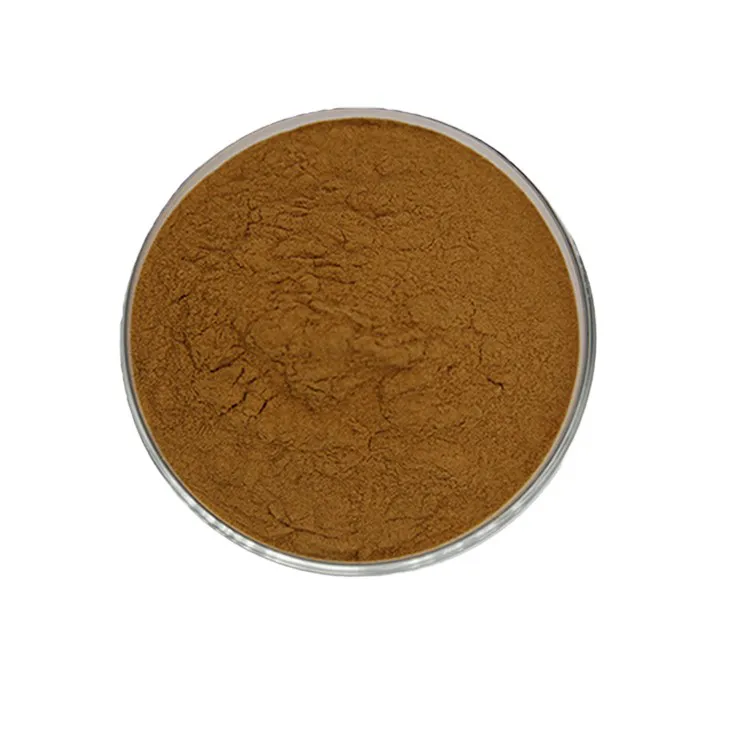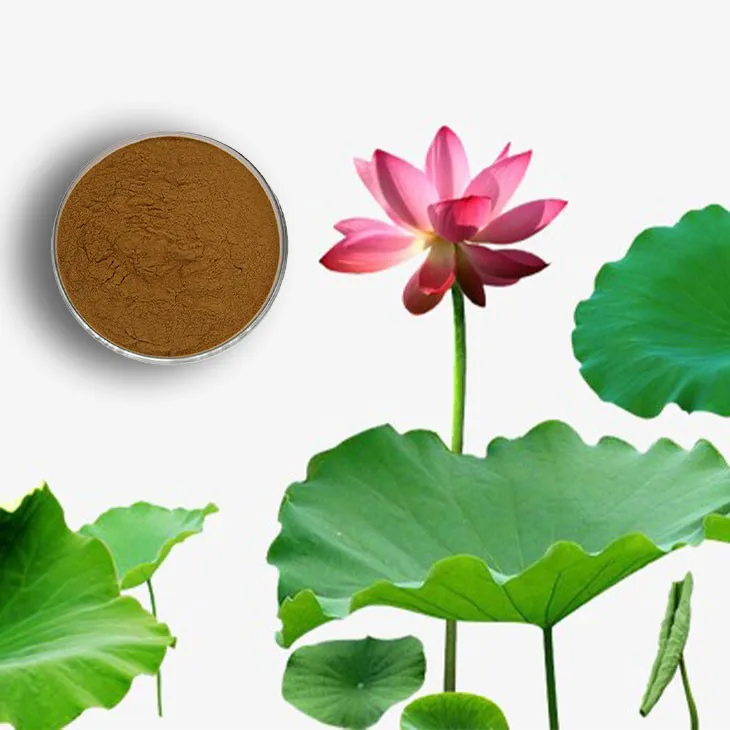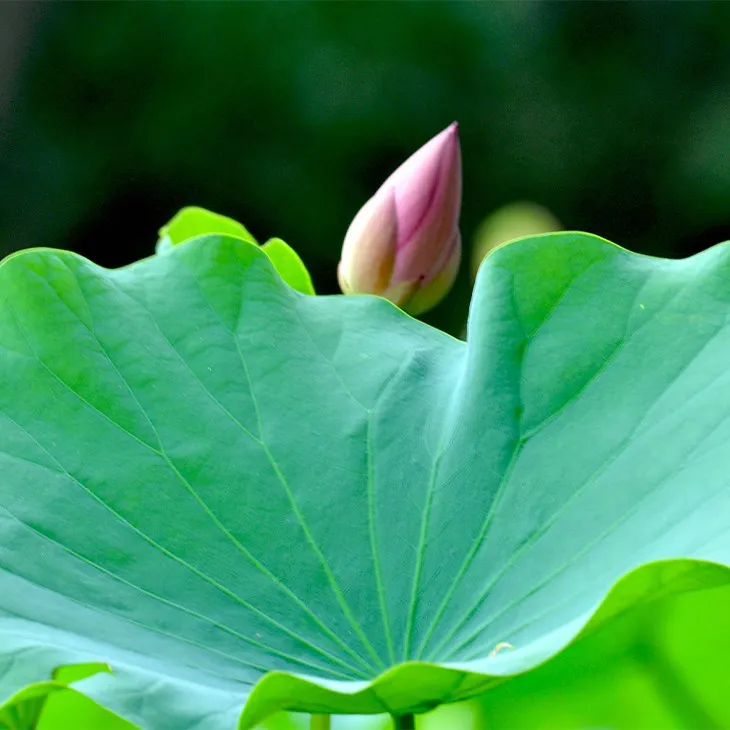- 0086-571-85302990
- sales@greenskybio.com
Best Answers to 7 Key Questions about Lotus Leaf Extract.
2024-12-15

1. What is Lotus leaf extract?
Lotus leaf extract is a natural substance obtained from the leaves of the lotus plant (Nelumbo nucifera). The lotus plant is well - known for its beauty and cultural significance in many Asian countries. The extract is rich in various bioactive compounds. These include flavonoids, alkaloids, and tannins. Flavonoids, such as nuciferine, are believed to have antioxidant properties. They help in protecting the body from free radical damage. Alkaloids may play a role in biological activities within the body, and tannins can contribute to the astringent properties of the extract.

2. What are the Health Benefits of Lotus leaf extract?
Weight Management
- One of the most popular benefits associated with lotus leaf extract is its potential role in weight management. Some studies suggest that it may help in reducing body fat. It is thought to work by inhibiting the activity of certain enzymes involved in fat absorption in the digestive system.
- The extract may also increase the feeling of fullness, which can lead to a reduction in calorie intake. This is beneficial for those who are trying to lose weight or maintain a healthy weight.
- Lotus leaf extract has been studied for its potential in regulating blood sugar levels. It may help in improving insulin sensitivity, which is crucial for the proper metabolism of glucose in the body.
- By enhancing insulin function, it can contribute to more stable blood sugar levels, which is especially important for individuals with diabetes or at risk of developing diabetes.
- As mentioned earlier, the flavonoids in lotus leaf extract have antioxidant properties. These antioxidants scavenge free radicals in the body, which are unstable molecules that can cause damage to cells and contribute to various diseases, including cancer and heart disease.
- By neutralizing free radicals, the extract helps in maintaining the overall health of the body and may slow down the aging process.

3. How is Lotus Leaf Extract Produced?
The production of lotus leaf extract typically involves several steps:
- Harvesting: First, the lotus leaves are carefully harvested. This is usually done during the appropriate season when the leaves are at their optimal quality. The leaves are selected to ensure they are free from diseases and pests.
- Cleaning: After harvesting, the leaves are thoroughly cleaned to remove any dirt, debris, or other contaminants. This step is crucial to ensure the purity of the final extract.
- Drying: The cleaned leaves are then dried. Drying can be done using natural methods such as air - drying or through the use of specialized drying equipment. Drying helps in reducing the moisture content of the leaves, which is important for the extraction process.
- Extraction: There are different methods of extraction. One common method is solvent extraction, where a suitable solvent, such as ethanol or water, is used to extract the bioactive compounds from the dried lotus leaves. The solvent is then removed through evaporation or other techniques, leaving behind the concentrated lotus leaf extract.

4. Are There Any Side Effects of Lotus Leaf Extract?
While lotus leaf extract is generally considered safe for most people when used in moderation, there are some potential side effects to be aware of:
- Digestive Issues: Some individuals may experience digestive problems such as stomach upset, diarrhea, or nausea. This may be due to the astringent properties of the extract or individual sensitivities to the bioactive compounds.
- Allergic Reactions: Although rare, allergic reactions to lotus leaf extract can occur. Symptoms may include skin rashes, itching, swelling, or difficulty breathing. Those with known allergies to plants in the Nelumbonaceae family should be especially cautious.
- Interactions with Medications: Lotus leaf extract may interact with certain medications. For example, it could potentially interfere with drugs used to control blood sugar or blood pressure. Therefore, it is important to consult a healthcare provider if you are taking any medications and considering using lotus leaf extract.

5. How to Use Lotus Leaf Extract?
There are different ways to use lotus leaf extract:
- As a Dietary Supplement: Lotus leaf extract is available in the form of capsules, tablets, or powders. When using it as a supplement, it is important to follow the recommended dosage instructions provided by the manufacturer or a healthcare professional.
- In Herbal Teas: Another popular way to consume lotus leaf extract is by making herbal teas. Dried lotus leaves can be steeped in hot water for a few minutes to create a fragrant and potentially beneficial tea. However, it should be noted that the taste may be quite different from traditional teas and may take some getting used to.
- Topical Application: In some cases, lotus leaf extract may be used topically in skincare products. It is believed to have properties that can help with skin health, such as reducing inflammation and improving skin tone. However, it is essential to ensure that the product is formulated for topical use and is suitable for your skin type.
6. Where Can You Find Lotus Leaf Extract?
Health Food Stores
- Many health food stores carry lotus leaf extract in various forms, such as supplements or herbal teas. These stores often focus on providing natural and alternative health products, making them a likely place to find lotus leaf extract.
- Online shopping platforms are another convenient source for lotus leaf extract. There are numerous online retailers that sell lotus leaf products. However, it is important to be cautious when purchasing from online sources. Ensure that the seller is reputable and that the product is of high quality.
- In areas where traditional Chinese medicine is practiced, traditional Chinese medicine stores may stock lotus leaf extract. These stores may offer products that are prepared according to traditional methods and may also provide additional information on the use of lotus leaf extract in traditional medicine.
7. What is the Future of Lotus Leaf Extract Research?
Potential in Medicine
- The future of lotus leaf extract research in medicine looks promising. Scientists are continuously exploring its potential in treating various diseases. For example, more in - depth studies are needed to fully understand its role in diabetes management and its possible anti - cancer properties. There is also potential for the development of new drugs based on the bioactive compounds found in lotus leaf extract.
- With the growing interest in functional foods and beverages, lotus leaf extract could play an important role. It may be incorporated into new food and drink products designed to provide specific health benefits, such as weight management or antioxidant - rich formulations.
- In the field of skincare and cosmetics, further research may lead to the development of more effective products containing lotus leaf extract. As consumers become more interested in natural and plant - based ingredients for their skin, the extract could gain more popularity in this area.
FAQ:
Question 1: What is lotus leaf extract?
Lotus leaf extract is a substance obtained from the leaves of the lotus plant. It contains various bioactive compounds, such as alkaloids, flavonoids, and polyphenols, which are believed to have potential health benefits.
Question 2: What are the potential health benefits of lotus leaf extract?
Some potential health benefits include its antioxidant properties, which can help combat oxidative stress in the body. It may also aid in weight management as it has been associated with lipid metabolism regulation. Additionally, there are claims that it could have anti - inflammatory effects and potentially contribute to better cardiovascular health.
Question 3: How is lotus leaf extract made?
The extraction process typically involves drying the lotus leaves first. Then, using solvents like ethanol or water, the bioactive compounds are extracted. The extract is then purified and concentrated to obtain the final lotus leaf extract product. The exact method may vary depending on the manufacturer and the intended use of the extract.
Question 4: Are there any side effects of using lotus leaf extract?
While lotus leaf extract is generally considered safe for most people when used in moderation, some individuals may experience side effects such as digestive discomfort, including nausea or diarrhea. Pregnant and breastfeeding women should avoid using it without consulting a healthcare provider, as its effects on fetal development and lactation are not fully understood.
Question 5: How can lotus leaf extract be used?
Lotus leaf extract can be used in various forms. It can be found in dietary supplements, usually in capsule or powder form. It may also be used in the cosmetic industry, added to skincare products for its antioxidant and anti - inflammatory properties. In some traditional medicine practices, it may be used in herbal preparations.
Question 6: Is there scientific research to support the claims about lotus leaf extract?
Yes, there is a growing body of scientific research on lotus leaf extract. However, more research is still needed in many areas. Some studies have shown its antioxidant and anti - inflammatory activities in vitro and in animal models. But human clinical trials are required to fully confirm its effectiveness for various health claims.
Related literature
- The Bioactive Compounds and Potential Health Benefits of Lotus Leaf Extract"
- "Lotus Leaf Extract: A Review of its Phytochemistry and Pharmacological Activities"
- "Advances in the Research of Lotus Leaf Extract in Weight Management"
- ▶ Hesperidin
- ▶ citrus bioflavonoids
- ▶ plant extract
- ▶ lycopene
- ▶ Diosmin
- ▶ Grape seed extract
- ▶ Sea buckthorn Juice Powder
- ▶ Beetroot powder
- ▶ Hops Extract
- ▶ Artichoke Extract
- ▶ Reishi mushroom extract
- ▶ Astaxanthin
- ▶ Green Tea Extract
- ▶ Curcumin Extract
- ▶ Horse Chestnut Extract
- ▶ Other Problems
- ▶ Boswellia Serrata Extract
- ▶ Resveratrol Extract
- ▶ Marigold Extract
- ▶ Grape Leaf Extract
- ▶ blog3
- ▶ blog4
- ▶ blog5
-
Pure 85% Tomentil Extract.
2024-12-15
-
Pueraria Lobata Extract
2024-12-15
-
Yam Extract
2024-12-15
-
Mulberry leaf Extract
2024-12-15
-
Baicalin
2024-12-15
-
Mango flavored powder
2024-12-15
-
Resveratrol extract
2024-12-15
-
Oat Straw Extract Powder
2024-12-15
-
Saffron Extract Powder
2024-12-15
-
Tamarind extract powder
2024-12-15
-
Hericium erinaceus extract powder
2024-12-15





















